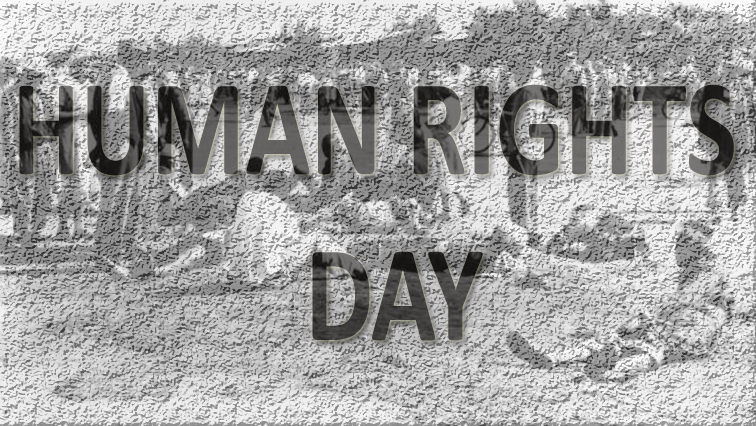The 21st of March, historically, marks and commemorates the sacrifice of the 69 people who lost their lives, whilst protesting repressive, Apartheid Pass Laws on the day in 1960.
It serves as an opportunity for the nation to be reminded of the sacrifices made to unburden us of the shackles of Colonialism and Apartheid, enabling us to pursue a society that values human rights and construct a country where diversity is celebrated.
Since the establishment of South Africa as a constitutional democracy, the day is a day of commemoration for all within South Africa and a day of particular importance for the South African Human Rights Commission (the SAHRC or Commission).
The SAHRC is established in terms of Chapter Nine of the Constitution and is mandated to protect, promote and monitor the attainment as well as the observance of the human rights set out in the Bill of Rights, Chapter Two of the Constitution. Thus, as the day now also represents the culmination of the very rights that accord all within South Africa inherent equality, freedom and dignity.
Human Rights Day and the accompanying celebration of the hard-won rights contained in the Bill of Rights remain relevant to this day. The Commission released its Trends Analysis Report, for the 2019-2020 financial year on the 16th March 2022. The Trends Analysis Report (TAR) provides a general overview of the handling of complaints for the year under review and is the best representation of how the SAHRC has delivered on its protection mandate during this particular period. The report provides statistical information on the numbers and types of complaints received, referred and finalised by the Legal Services Unit (LSU), and the Commission’s nine Provincial Offices. The Trends Analysis Report for the financial year 2019-2020, provides a glimpse into the state of human rights and the priorities for the SAHRC, prior to the COVID-19 pandemic.
What this report indicates is that the Commission’s increased outreach has led to more people being informed and equipped to bring their complaints regarding human rights violations to the Commission. The total number of complaints received by the Commission increased by 13% from the previous financial year. The increase is partly a result of the increased visibility, advocacy and activities undertaken by the Commission during the period under review.
‘Advocacy’ is defined as human rights-based and people-driven activities aimed at empowering and informing people to effectively realise their rights and is an essential element in the Commission’s delivery of its promotional mandate.
As much as the Commission welcomes the increase in awareness by the public and the accompanying trust society places in the Commission, by lodging their complaints with it to find appropriate redress, the Commission remains concerned with trends regarding the types of complaints received.
Inequality complaints continue to constitute the highest number of complaints received by the Commission annually. Of these complaints, most are based on race. It is clear that inequality borne from the legacy of apartheid and colonialism, continues to fuel racial tensions in South Africa.
Equality-related complaints, on average, have constituted a 14-15% against the total number of complaints received by the Commission, over the past eight financial years, including the period in question. Race, disability and sexual orientation represent the highest number of inequality complaints. Overall, the SAHRC received 827 complaints based on the violation of the right to equality for the 2019-2020 financial year.
These trends are of concern for the Commission as social cohesion remains threatened by persistent actions and utterances that are racist, sexist, xenophobic, and unfairly discriminatory toward LGBTI and GNC persons. It is incumbent on all within South Africa, including government, civil society, business, faith-based communities and ordinary people to combat unfair discrimination and foster greater social harmony.
The Commission is also concerned that socio-economic rights-related complaints (which comprise health care, food, water and social security), have consistently remained in the top five human rights violations reported to the Commission. These trends reflect the continuing deep socio-economic disparities and fissures in our society.
Access to health care and water remains of the top two complaints within complaints based on socio-economic rights. Common problems relating to water service provision include a lack of access to sufficient potable water, water interruptions or shortages, and poor water quality.
The Commission received a total of 702 complaints based on socio-economic rights. It is important to note that economic and social rights impact disproportionately on black African people, women, and people in rural areas. As such, there is a strong link between equality and socio-economic rights-related complaints.
Therefore Human Rights Day, this year should be a moment of reflection and action to ensure that the rights of all within South Africa are protected in line with this year’s theme: “The Year of National Unity and Renewal: Promoting and Protecting Our Human Rights”.
South Africa commemorates this day as a national public holiday, however, the Commission has planned a range of activities throughout the country during human rights month and will be commemorating the day with various activities across South Africa, with a view to raising awareness on various rights with a special focus on the responsibilities we each bear in promoting the human rights of others, in our day to day interactions. Later this year the Commission intends to announce plans for a sustained National Effort to forge social harmony through cultivating social cohesion, solidarity and healing.
Gushwell F. Brooks is the SAHRC Communications Coordinator and spokesperson


